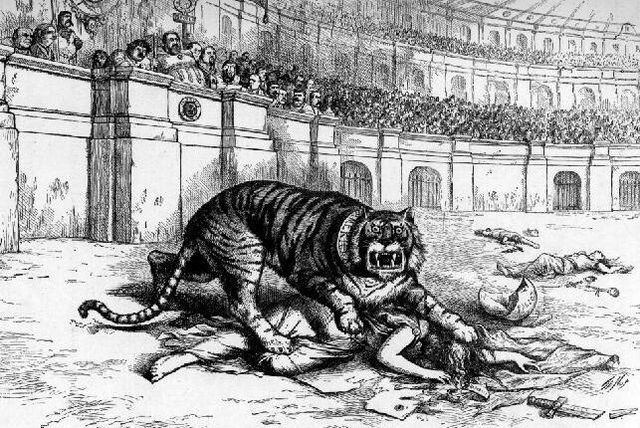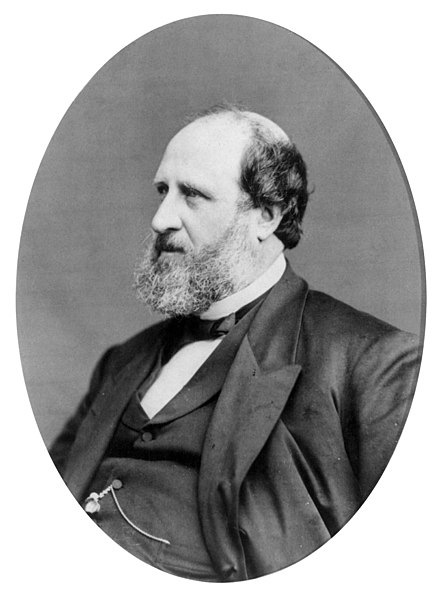Charles Francis "Silent Charlie" Murphy, also known as Boss Murphy, was an American political figure. He was also the longest-serving head of New York City's Tammany Hall, a position he served from 1902 to 1924. Murphy was responsible for transforming Tammany Hall's image from one of corruption to respectability as well as extending Tammany Hall's political influence to the national level. Murphy was responsible for the election of three mayors of New York City, three governors of New York State, and two U.S. senators, even though he was never listed as a leader of Tammany Hall.
Portrait of Murphy, c. 1903
Murphy (left) with William H. Fitzpatrick, the Erie County Democratic leader
Murphy caricatured in William Randolph Hearst's New York Journal (November 10, 1905)
Tammany Hall, also known as the Society of St. Tammany, the Sons of St. Tammany, or the Columbian Order, was an American political organization founded in 1786 and incorporated on May 12, 1789, as the Tammany Society. It became the main local political machine of the Democratic Party and played a major role in controlling New York City and New York State politics, and helped immigrants, most notably the Irish, rise in American politics from the 1850s into the 1960s. Tammany usually controlled Democratic nominations and political patronage in Manhattan for over 100 years following the mayoral victory of Fernando Wood in 1854, and used its patronage resources to build a loyal, well-rewarded core of district and precinct leaders; after 1850, the vast majority were Irish Catholics due to mass immigration from Ireland during and after the Irish Famine of the late 1840s.
The Tammany Hall logo on its headquarters at 44 Union Square
In 1871, Thomas Nast denounces Tammany as a ferocious tiger killing democracy. The image of a tiger was often used to represent the Tammany Hall political movement.
William M. Tweed, known as "Boss" Tweed, ran an efficient and corrupt political machine based on patronage and graft.
Tammany Ring by Thomas Nast; "Who stole the people's money?" / "'Twas him."







